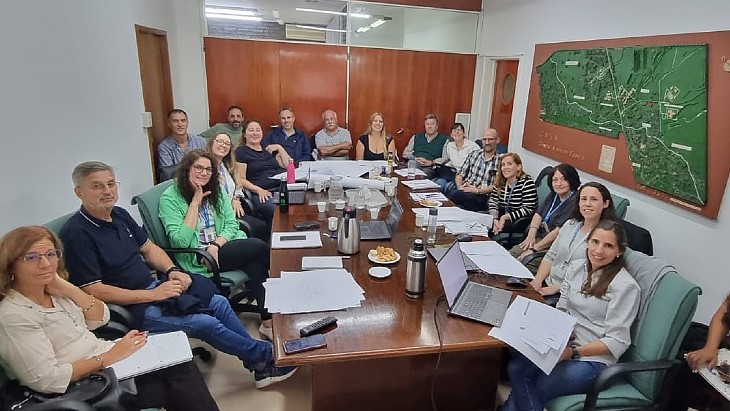
The RA-10 - a 30 MWt open-pool research reactor - is being constructed at the Ezeiza Atomic Centre in Buenos Aires province to replace the RA-3 reactor on the same site. This 10 MWt pool-type reactor began operations in 1967. The RA-10, due to be ready for operation in 2026, will be used for the production of medical radioisotopes, as well as irradiation tests of advanced nuclear fuel and materials, and neutron beam research.
When it is up and running, RA-10 will have the capacity to cover 20% of world demand for the radioisotope molybdenum-99, from which technetium is obtained, CNEA says, adding it will also be possible to produce other radioisotopes that are not made in the country, such as lutetium, used to treat prostate cancer and other pathologies.
The new facility will allow the targets that are irradiated in the RA-10 reactor to be processed on an industrial scale and obtain sustained production of both radioisotopes and, in export terms, will put the country on a similar level to the Netherlands, Belgium, South Africa, Russia and Australia.
According to a report on the workshop published by CNEA and INVAP the aim is to conclude the conceptual engineering review in July.